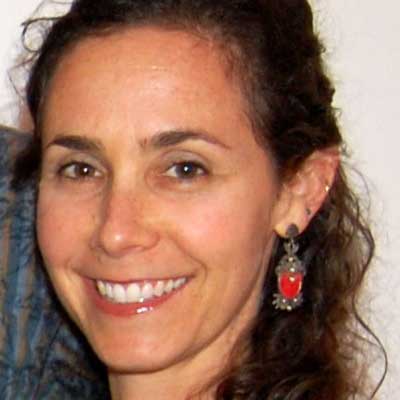Start talking... NOW!

by Nicole Monastersky Maderas
Are you seeking information and tools on how to talk with your kids about sex and sexuality? With limited spare time, how do you choose which books to read? What do the experts recommend?
Recently, I have been staying up way too late reading books that provide tools for addressing our kids’ questions, and even raising the (dreaded) topic with them. While Americans are often regarded as puritanical when it comes to talking about sex, these books written by Americans maintain that it’s a parent’s job to deal with the subject. (Yes, that means you!) Because let’s face it: regardless of whether or not we are teaching our kids about sex, they are learning about sex. And what they are learning – from the media, friends, and the Internet – may not be accurate, nor reflect the values we have and want to impart to our children.
One good read that not only supports parental involvement in sex education but also provides useful, age-appropriate tools is Everything you NEVER wanted your kids to know about SEX (but were afraid they’d ask) by Justin Richardson, MD, and Mark A. Schuster, MD, PhD. Not only is the title an attention grabber, the content kept me engaged throughout the book.
Parenting may be the most challenging and most important job we ever have. As parents, our role is to provide our children with tools to make decisions to become healthy young people and adults. As the authors write, “Your child will become a sexual person with or without your intervention…. You want your child to be wisely sexual, to be healthily sexual, to be happily sexual.” To this end, I believe it is part of the “job description” of a parent to provide information and resources for decisions to positively influence their children’s sexual health and well-being.
Since there is no owner’s manual that comes with your child–nor is there much in the way of socially-acceptable conversation starters on the subjects of sex and sexuality– it’s no surprise that so many of us feel uncomfortable or ill-equipped to address the topic. But as the saying goes, there is no time like the present. “Apparently, waiting to tell your child about procreation until you think she will fully understand only delays her ability to grasp the facts. The sooner children hear about the facts of life, the sooner they will be able to understand them,” write the authors. At BACHE, we are fond of the idea that there is no one “Big Talk.” In fact, if you establish open communication with your kids on these topics when they are young (say, for example, by simply naming anatomy correctly), it establishes a communication channel that helps to foster a loving, confident relationship, and avoids creating shame or taboo around sexual health. The authors say that talking about sex early may also prevent the discomfort our children have talking about sex with parents as they get older, and minimize the sense that parents may be judgmental.
We don’t have to sound like educators when we talk with our children, and we don’t even have to appear comfortable, if that is not the situation. Making yourself available and developing a bond that fosters clear and easy communication is important, so that when you find your three year-old son with an erection or wriggling on an uncle’s lap, or your six-year-old daughter humping her favorite stuffy, or your eight-year-old daughter and her friends dancing naked at a birthday party, or your eleven-year-old son playing spin the bottle, and so on into the teenage years… you will have already laid the groundwork for talking about whatever comes up. The authors suggest that your child may then choose to seek your input and counsel as her sexuality continues to develop.
After establishing the notion that you are your child’s primary sexual educator, the authors expand on specific topics relevant to puberty, gender orientation, privacy and boundary-setting, sexual intercourse, pregnancy, STIs, and more. From your first conversations with your child about your values around sex and sexuality, your child is shaping his/her sense of “normal” and “healthy” sexuality. As the authors write: “It’s best when you respond to his sexual curiosity with respect and acceptance along with rational and consistent limits.”
The framing of this “self-help” book is novel. Not only does it provide guidance and tools for parents to deal with the taboos of sexuality, it provides a light-hearted reminder that we – alongside our children – are surviving their sexual development. Not only are our children growing and evolving as sexual beings, we can reflect upon the fact that we, too, are growing and evolving as sexual beings. This book provides fabulous tools to help us raise children who are “wisely, healthily, and happily” sexual.
Reprinted with permission from Bay Area Communities for Health Education. BACHE has a list of recommended great reads on this subject.





